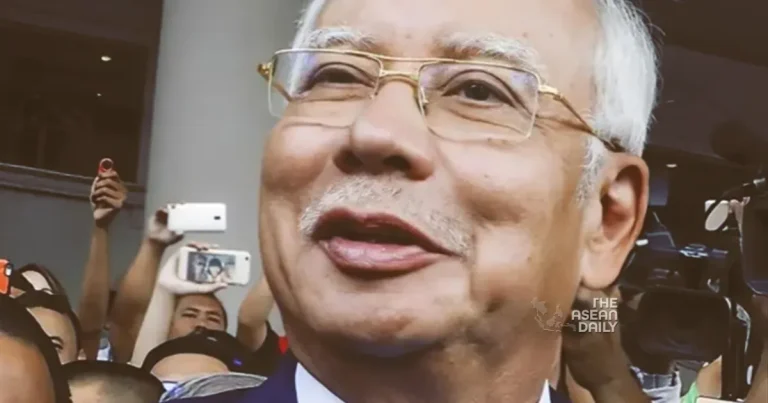17-4-2024 (KUALA LUMPUR) The ongoing saga surrounding jailed former Malaysian Prime Minister Najib Razak’s quest to serve the remainder of his sentence under house arrest has taken a dramatic turn, entangling two high-ranking Cabinet ministers in a web of conflicting claims and legal maneuverings.
At the heart of the controversy lies Najib’s bid to initiate legal proceedings against Prime Minister Anwar Ibrahim’s administration. The former premier seeks to compel the government to produce an alleged addendum order, purportedly issued by Malaysia’s former monarch, Al-Sultan Abdullah Ri’ayatuddin Al-Mustafa Billah Shah of Pahang, which would allow Najib to serve the rest of his six-year sentence at home.
The fate of Najib’s application hangs in the balance, with a High Court judge granting his lawyer’s request for a closed-door hearing on June 5, when a verdict on the matter is expected. However, the drama has escalated as recent revelations have implicated Deputy Prime Minister Ahmad Zahid Hamidi and Investment, Trade and Industry Minister Tengku Zafrul Tengku Abdul Aziz in the unfolding saga.

In an affidavit submitted to the Kuala Lumpur High Court on April 9, Ahmad Zahid claimed that Tengku Zafrul had shown him a copy of the royal order approving Najib’s house arrest. According to the Deputy Prime Minister’s account, during a meeting at his residence on January 30, a day after the Pardons Board convened to reduce Najib’s initial 12-year sentence to six years, Tengku Zafrul allegedly informed him of the addendum order’s existence and even displayed a photograph or scan of the document on his phone.
However, in a statement issued on Wednesday evening, Tengku Zafrul disputed the claims in Ahmad Zahid’s affidavit, asserting that it contained “certain factual errors.” The minister expressed his intention to seek legal advice and request the High Court’s permission to file an affidavit correcting the purported inaccuracies, stating his desire to ensure that the court is properly apprised of all material facts to facilitate a “just and fair decision.”
The Attorney-General’s Chambers (AGC) has also weighed in, pledging to bring Tengku Zafrul’s comments to the attention of the court.

As the drama unfolds, analysts warn that Anwar’s administration could emerge on the losing end, regardless of the outcome. If Najib succeeds in initiating legal proceedings against the government, it will be challenging for Anwar to justify his administration’s failure to disclose the alleged addendum order, potentially undermining public trust and transparency.
Moreover, Ahmad Zahid’s actions could exacerbate tensions between the unity government and the United Malays National Organisation (UMNO), the party he leads, further straining a delicate relationship upon which Anwar’s government relies for its parliamentary supermajority.
“Zahid’s affidavit is part of a strategy to stave off accusations that he did not do his best in terms of Najib’s pardon,” said Azmi Hassan, a senior fellow at the Nusantara Academy for Strategic Research. “It will, of course, put pressure on the unity government to explain what really happened. Because the authenticity of the king’s addendum, no doubt, is there.”
Analysts suggest that Anwar could find himself in a precarious position, as challenging Najib’s bid for house arrest could be perceived as undermining the role of Malaysia’s constitutional monarchy. Conversely, granting leniency to the former premier, who was initially sentenced for corruption charges related to the 1Malaysia Development Berhad (1MDB) scandal, could further erode public confidence in the government’s commitment to combating systemic corruption.
“If Anwar went on to say that he knew about the addendum order, why was he not transparent with the people of Malaysia?” questioned Professor James Chin of the University of Tasmania, highlighting the potential credibility crisis facing the Prime Minister.




